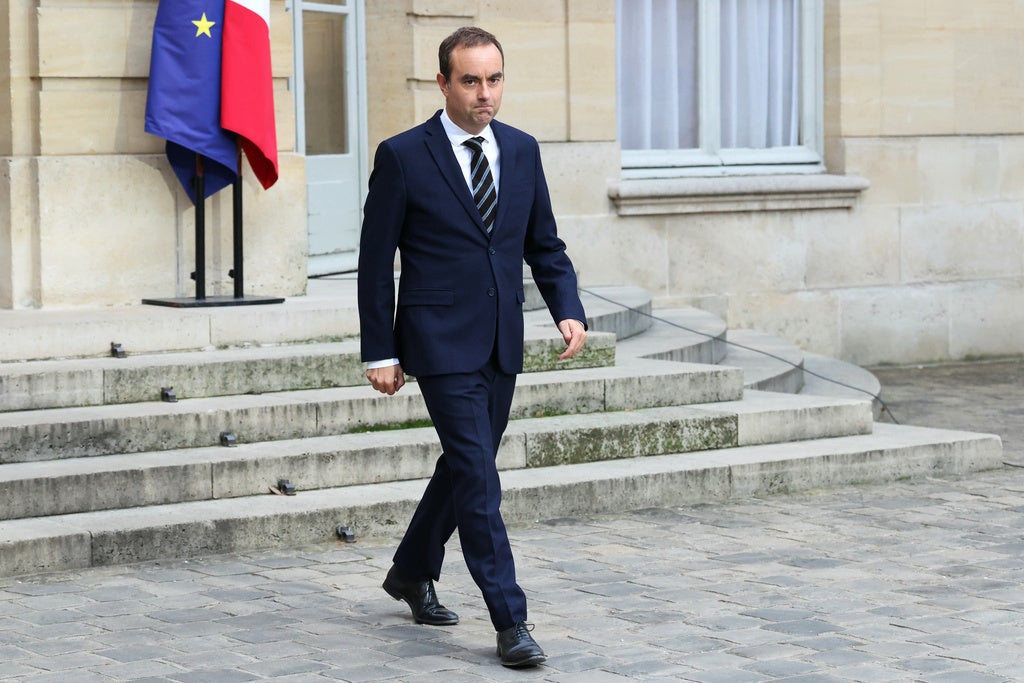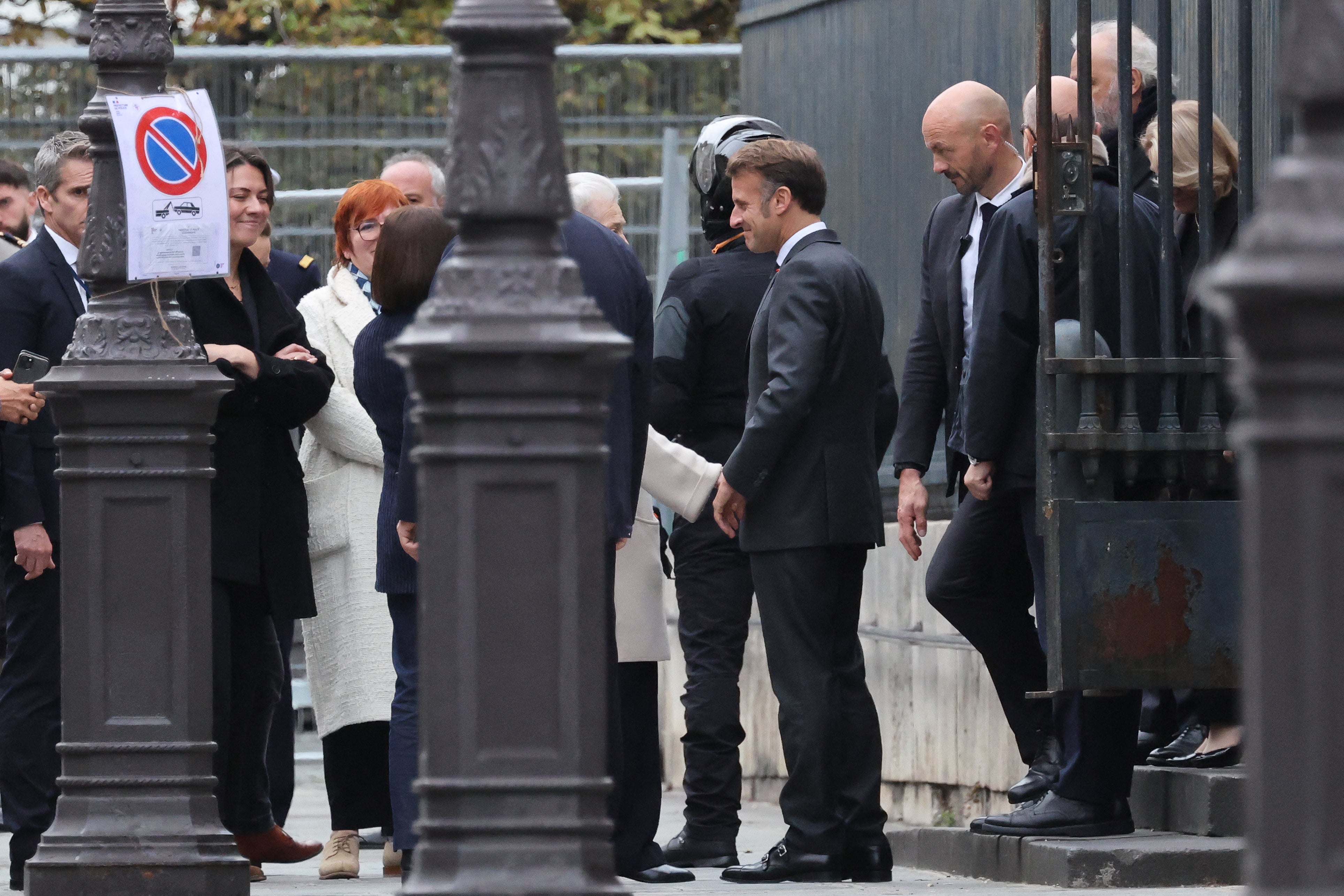France has lost its fourth prime minister in 12 months, after Sebastien Lecornu handed in his resignation on Monday just hours after announcing his cabinet.
The swift and unexpected departure of Mr Lecornu after 27 days in the role will spell a major deepening of France’s political crisis, piling pressure on President Emmanuel Macron to call a snap parliamentary election.
“One cannot be prime minister when the conditions are not met,” Mr Lecornu said in a short speech after his resignation, taking aim at the “egos” of opposition politicians who stuck to their manifestos as members of his own minority coalition focused on their presidential ambitions.
“It wouldn’t take much for things to work out,” the outgoing prime minister said, suggesting opposition leaders were more open to compromise in private discussions than public statements would let on.
But until France’s lawmakers can find common ground on how to tackle the country’s most pressing issues, Mr Macron’s position atop French politics looks precarious, and public frustrations will only grow.

Why did Lecornu resign?
The decision to resign was unexpected. For weeks, Mr Lecornu had tried to avoid the pitfalls of his predecessors, scrambling to find common ground with an increasingly divided parliament.
Mr Lecornu – the fifth prime minister in two years – was tasked with passing a restrained budget and bringing a sense of stability back to France’s politics. Instead, he leaves the country in chaos.
Grégoire Roos, programme director for Europe and Russia, Chatham House, told The Independent “the past 12 hours have triggered one of the deepest and frighteningly chaotic institutional crises in post-war France”.
France’s political issues have seen support dwindle for Mr Macron’s brand of centrism, while the fringes on the hard left and hard right have gained support.
Mr Macron appointed Mr Lecornu, an ally, in September in the hope that he could shore up support for the minority coalition. Mr Lecornu, in turn, had promised a break from the past, vowing to meet with opposition leaders for talks and assuring he would not try to force through an austerity budget without a vote from parliament.
After weeks of consultations with opposition leaders, Mr Lecornu appointed his ministers on Sunday, and they had been set to hold their first meeting on Monday afternoon.
But the new cabinet line-up had angered opponents and allies alike, who either found it too right-wing or not sufficiently so. This raised questions on how long it could last, with no group holding a majority in a fragmented parliament.
The appointment of familiar faces in the new cabinet did not suggest a commitment to real change to the broad opposition.
Leaving, Mr Lecornu said that political parties had “sometimes pretended not to see the change, the profound rupture, not to use article 49.3” – the controversial article allowing the government to pass bills without a vote.
Not using the article would have made it harder to push through a legislative agenda as France tries to rein in public spending. Using it would have allowed opposition parties to respond with a no-confidence motion.

What happens now?
Emmanuel Macron has two choices following Mr Lecornu’s resignation.
He could try again to appoint another prime minister, either from his own base or from his opposition.
Mr Lecornu was seen as an ally. The decision to appoint him did not appeal to Mr Macron’s opponents, and a tactical appointment might help win some support for passing legislation.
A successor would still likely have to convince the centre-left Socialist Party to move budget talks along.
The alternative is to dissolve the National Assembly and call another snap parliamentary election. The hard-right National Rally immediately jumped at the news of Mr Lecornu’s departure suggesting Mr Macron should do just that, anticipating a gain for their party.
Mathilde Panot, of the hard-left France Unbowed, agreed. She wrote on X: “Lecornu resigns. 3 Prime Ministers defeated in less than a year. The countdown has begun. Macron must go.”
If Mr Macron does name a new premier, questions remain over how the government will pass the unpopular budget.
In the interim, outgoing ministers will still be responsible for the day-to-day running of the state.
Roos, of Chatham House, told The Independent: “Faced with a disintegrating coalition, spiralling political chaos and an impending debt crisis – Macron now looks alone, with his back against the wall with few viable options.
“The once unthinkable: stepping down before the end of his term and triggering the process for presidential and legislative election, can no longer be ruled out.”
He said the decision of Bruno Retailleau, the chairman of the centre-right Les Républicains party, to reconsider joining the government was “perhaps the most significant act” of the last 12 hours, “all but confirming that the brutal battle to succeed President Macron has now started”.

Why is France’s economy in crisis?
France, the second-largest economy in Europe after Germany, has one of the highest levels of spending on the continent.
Last year, public spending accounted for 57 per cent of the country’s gross domestic product (GDP), on financing healthcare and welfare including its generous pension and unemployment benefits.
This has led to big deficits and rising national debt, which stands at €3.35trillion (£2.9trillion) as of the financial year ending March 2025, which equates to almost 114 per cent of its GDP. The UK’s debt is also around £2.9trillion, but representing almost 96 per cent of GDP.
Starmer faces cabinet revolt over Budget tax rises driving wealthy away
FTSE 100 finishes lower as political woe in Paris jolts CAC 40
Miu Miu stays steady at Paris Fashion Week as France grapples with political turmoil
Ukraine war latest: British parts found in Russian drones used on Kyiv, says Zelensky
Greta Thunberg greeted by crowd after Israel expels flotilla activists
Cycling team Israel Premier Tech rebrands and drops national identity







